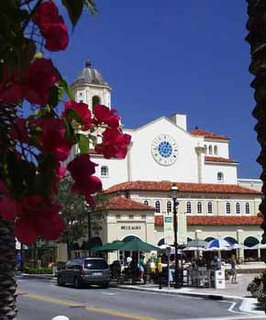Culture Industry is one year old today. Thanks to everyone who’s ever dropped by.
***
Remember the “My Three Songs” challenge – name the thread of continuity among Depeche Mode’s “Route 66,” U2’s “Night and Day,” and Lloyd Cole and the Commotions’ “Perfect Skin”? Well, out of the thousands of entries (actually 3) Michael came closest – “um... Night Porter, Cole Porter, Lloyd Cole, ?” I don’t follow the “Night Porter” allusion (the only song by that name I know is by Japan), but he’s on the right track, even if he’s looking for a Wittgensteinian “family resemblance” rather than a direct commonality. We don’t get quite that subtle around here, folks: the connection is of course the name “Cole” – “Route 66” was made famous in 1946 by Nat “King” Cole, Cole Porter wrote “Night and Day” (which U2 covered on the
Red Hot and Blue AIDS benefit album), and Lloyd Cole’s last name is – well – Cole.
***
Finished David Edmonds & John Eidinow’s
Wittgenstein’s Poker last night, and found myself that I actually had learned something in the last stretch of their diverting but pedestrian 300 pages. E&E decide, on the basis of the preponderance of evidence, that Karl Popper’s response, when asked that he give an example of a moral rule, “Not to threaten a visiting lecturer with a poker,” was probably made
after Ludwig Wittgenstein had left the meeting, rather than before. In short, while Popper recalled in his autobiography that he’d made the quip to LW’s face, in response to LW’s request, & at the end of LW’s poker, whereupon LW threw the poker down in disgust and left, E&E show that KP was probably “misremembering”: the poker quip almost certainly got made after LW stalked out of the meeting (as, everyone remembered, was pretty much his habit when out of patience).
Popper, E&E make clear, had gone to Cambridge in 1946 with the clear intention of challenging Wittgenstein & the whole tradition of “ordinary language” philosophy growing up around him. The thrust of P’s argument that afternoon was that there were indeed real philosophical problems that philosophers ought to address – he cited as examples the existence of real or potential infinity, induction, & causation, but it’s clear he had in mind his own massive work,
The Open Society and Its Enemies, which addressed the roots of totalitarianism in Western thought from Plato on, and made an aggressive argument on behalf of free expression & a vigorous public sphere.
Wittgenstein believed, in contrast, that the difficulties philosophers dealt with were for the most part “puzzles,” enigmas or glitches that arose when language – perfectly adequate for the ordinary business of life – is torqued in abnormal uses. What Popper called “problems” lie outside of the scope of philosophy: Infinity is not a philosophical, but a mathematical problem; induction is a logical problem; and all of the moral and political issues dealt with in KP’s big book – which LW probably never read – were the province of the sociologist or historian, not the philosopher.
Popper left Cambridge thinking he had bested Wittgenstein, having goaded him into physical aggression and then challenged him with a moral imperative –
thou shalt not threaten a visiting lecturer with a poker – that drove him from the field. E&E make a strong case that what really happened was that LW grew more and more impatient with the “nonsense” spouted by this “ass” (LW’s words) until he finally left the room in disgust, as he had many time before. Did he even realize he’d been punctuating his own objections by gesturing with a poker?
It’s not really hard to see where E&E come down in the final question of who “won” this dispute. (The fact that the final photo in their book is of a sage-like, elderly Popper is one clue.) Their final chapter, “All Shall Have Prizes” (the title is from
Alice in Wonderland, where the Dodo distributes sweets to all participants in the Caucus-race), tots up the score: LW has become a fixture of contemporary philosophy, one of the top 5 philosophers of all time according to one poll, constantly taught, argued over, & adapted by poets & novelists – but whose work has had little impact outside of the ivory tower of academia, & who remains something of a slippery “mystic.” Popper, on the other hand, has almost been a victim of his own success: his arguments against totalitarianism and on behalf of an open society have become “received wisdom,” “beyond challenge and so beyond debate.”
I’m not really interested in critiquing E&E’s account of Popper’s & Wittgenstein’s philosophies, but I can’t help feeling that the way in which they pit the two men against each other ends up missing out on precisely what’s most interesting about their confrontation: the extent to which it stands as synechdoche for two very different ways of conceiving of the
discipline of philosophy itself. For Popper, the philosopher is the thinker whose task is to take on the “big questions” – the meaning of life, what is the good life, etc. (One thinks of the Bertrand Russell joke: BR gets into a London cab, whose driver says, “’Eh, in’t you Bertrand Russell?” “Why, yes, my good man.” “So, guv, whassit all about?”) For Wittgenstein, the “big questions” are either by definition beyond the reach of philosophy and even language itself – ethics, for instance, can only be shown, and aesthetics are similarly meta-lingual – or result from misuses of language: to ask the “what’s the meaning of life?” is in essence to misuse the language-game of asking “what’s the meaning of X?” (Eg, “what’s the meaning of ‘synechdoche,’” “what’s the meaning of that poster?”) Where Popper conceives of philosophy as something of an all-purpose intellectual Swiss Army knife, Wittgenstein sees it as a hygenic device, an analytic logic whose purpose is to cut through the fog and fuzziness that obscures our ability to discern when we can usefully think and talk about something and when we’re better off leaving well enough alone.
Perhaps that’s why Popper’s been left in the dustbin of history and Wittgenstein still retains his power to startle and compel: while Popper’s ideas might (or might not) have been “right,” in the end he was just another philosopher telling us what it’s all about; Wittgenstein had an entirely new conception – if a diminished one – of what it meant to think philosophically.
***
Ali Farka Touré (1939-2006).




